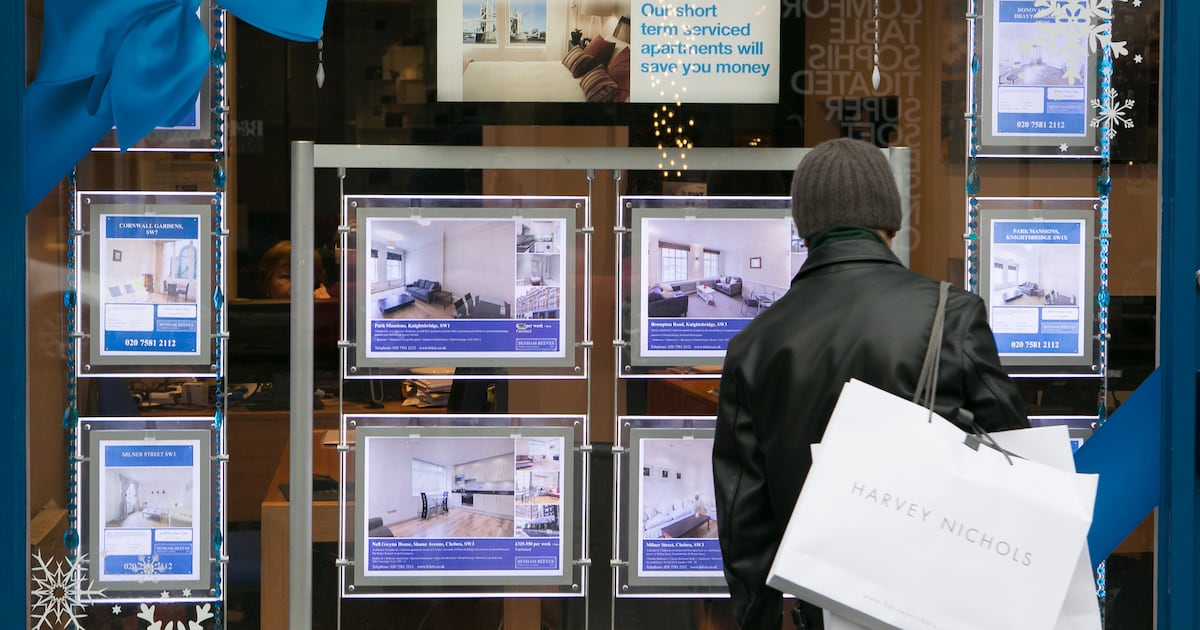Housing market activity has ramped up in Northern Ireland compared with summer 2024, bucking the usual seasonal slowdown, according to property website Zoopla.
Buyer demand is 11% higher compared with a year earlier, accompanied by an 8% increase in agreed sales, Zoopla said.
Its figures compared the four weeks to June 20 2025 with the same period in 2024.
The average UK house price was put at £268,400 – 1.3% higher than a year earlier.
Although price growth is up from 0.4% last June, it has nearly halved from the 2.1% seen just six months ago in December 2024, according to the report.
Scotland, Wales and northern England are generally experiencing faster house price inflation, typically between 2% to 3% annually, Zoopla said.
But it said Northern Ireland is a “standout,” with prices up by 6.1% to £186,500, and by 7.8% in Belfast, albeit from a lower base.
Richard Donnell, executive director at Zoopla, said: “We’re seeing healthy levels of demand and sales, but this isn’t sparking faster price inflation.
“In fact, more homes for sale, particularly across southern England, is re-enforcing a buyer’s market, keeping price rises in check. Many more home buyers are paying stamp duty since April and want this extra cost reflected in the price they pay.
“While mortgage rates are holding steady, less stringent affordability testing has boosted buying power and is supporting more sales despite increased uncertainty.
“At the start of the year, we predicted house prices would rise just 2%, at the lower end of forecasts for house price inflation. Prices are on track to be 1% higher over 2025, half the level forecast.
“Greater supply of homes for sale and mortgage rates remaining higher than expected are the key reasons for weaker growth. Low house price inflation is not a bad thing so long as there is enough market confidence for people to list their homes and make bids to buy homes.”
The website said that higher stamp duty costs in England and Northern Ireland, following the end of temporary reliefs in April, continue to act as a drag on house price inflation, adding that buyers will be looking to reflect increased stamp duty costs in what they offer for homes.


